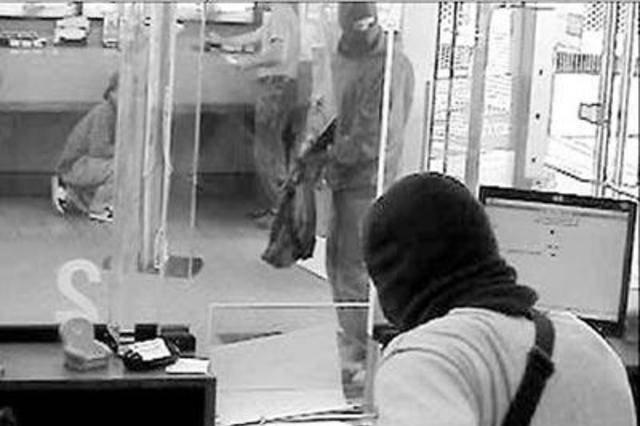Ranger Games, by former Seattleite Ben Blum, is something of a genre mashup, part journalism and part family memoir.
The journalistic part pieces together, in high definition, the brazen 2007 robbery of a South Tacoma bank by a group of Army Rangers from Fort Lewis. The robbery, Rick Anderson’s coverage of which for Seattle Weekly gets brief mention (“Soldiers of Fortune,” Nov. 29, 2007), is a stranger-than-fiction tale in which a possibly psychopathic Army specialist convinces a “cherry” private and a small group of others that their training makes them well-suited to take out a bank. As Blum describes it, the robbery sounds like something that would have been fun to watch were you not facing the barrel of one of the AK-47s the robbers hoisted: Rangers vaulting over barriers, calling out precise time checks, and then respectfully thanking everyone when it was done, all within 2 minutes. Astoundingly, the elite soldiers’ dexterous robbery was undone when they drove away, with security cameras watching, in one of their own cars with the license plates in full view. Arrests were made within a day. None of these details are spoilers, by the way; so rich is this book that the facts of the robbery are dealt with quickly in the first few pages.
Which brings us to the family memoir part of the book: Blum’s insight into this piece of local history is sharpened by the fact that his cousin was one of the robbers—or the get-away driver, to be precise. Pfc. Alex Blum’s Audi with Colorado plates was the team’s undoing, and a large portion of Ranger Games is devoted to Ben Blum trying to figure out how Alex wound up involved in such a fiasco. As described by the author, the Blum family is an all-American sort, which is not necessarily a flattering look: they are wealthy, white, apathetic toward the Iraq War Alex would soon be fighting in, and sitting ducks for the looming housing crisis. Blum’s portrait of his cousin is unsparing, peppered with quotes that make you kind of hate him. “I play a tough guy on the exterior, but a kid gives me a card, I hang it in my office. He signed it himself, in his little retard writing,” Blum quotes his cousin at one point in full bro mode.
Indeed, it is Ben Blum’s love-hate relationship with his cousin that is the driving tension of the book. The central question is how willing a participant in the robbery Alex was. Through breezy explanations of Ranger culture and prisoner psychology, Blum builds a plausible case that Alex was completely at the mercy of his military chain of command, and so when a superior told him to drive to a bank with a bunch of guns in the back seat he had no choice but to follow orders. This theory was endorsed by none other than Philip Zimbardo, the psychologist who orchestrated the Stanford Prison Experiment in 1971. At one point, Zimbardo and Alex appeared on the Dr. Phil show to explain how it all worked in Alex’s brain. “So what you’re telling me,” Dr. Phil says at one point, speaking for the entire world, “is that you did not know that you were involved in an armed. Robbery. Of a bank.”
Blum shares Dr. Phil’s skepticism. The author is careful to note the holes in this explanation, and as the book progresses those holes grow and shrink. The book reaches its climax when Blum has an 8-hour interview in a federal penitentiary with Luke Elliott Sommer, the ranger who orchestrated the heist. Blum contemplates whether Sommer is a psychopath—with the help of a clinician from Washington’s McNeal Island—to uncertain results. What’s clear is the guy is highly manipulative and fucking nuts, a dangerous combo if there ever was one. He was prone to forcing subordinates to do “suicide checks” at Fort Lewis, which entailed giving soldiers a gun and demanding they hold it to their head and pull the trigger, to prove loyalty and trust. Blum writes that he could empathize with those who obeyed the crazy orders. “At the distance of a small table from Elliott, there was a strange double quality to my consciousness,” Blum says in describing falling into Sommer’s trap, “one half telling myself I could see right through him, the other half helplessly interacting on his terms.”
More than anything else this is a book about uncertainty: Uncertainty in one’s consciousness, in one’s family lore, in Dr. Phil, in what we can call free-will. Uncertainty in why the robbers didn’t cover up the Audi’s license plate.
Ranger Games Reading with Ben Blum. Elliott Bay Book Company, 1521 10th Ave, elliottbaybook.com. Free. All ages. 7 p.m. Tues., Sept. 12.









